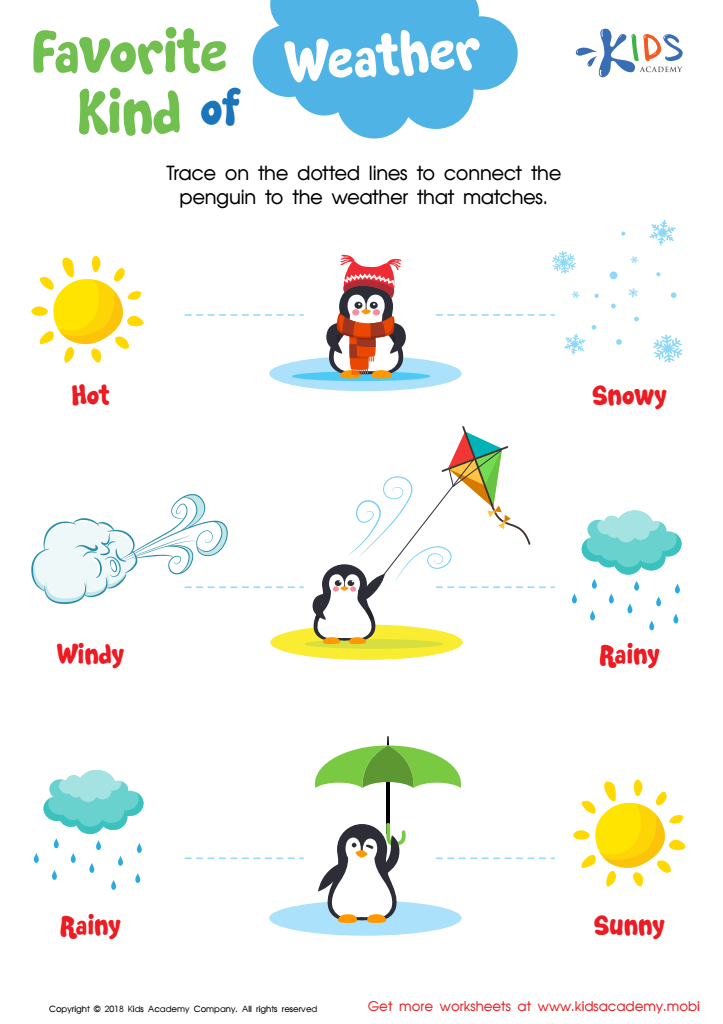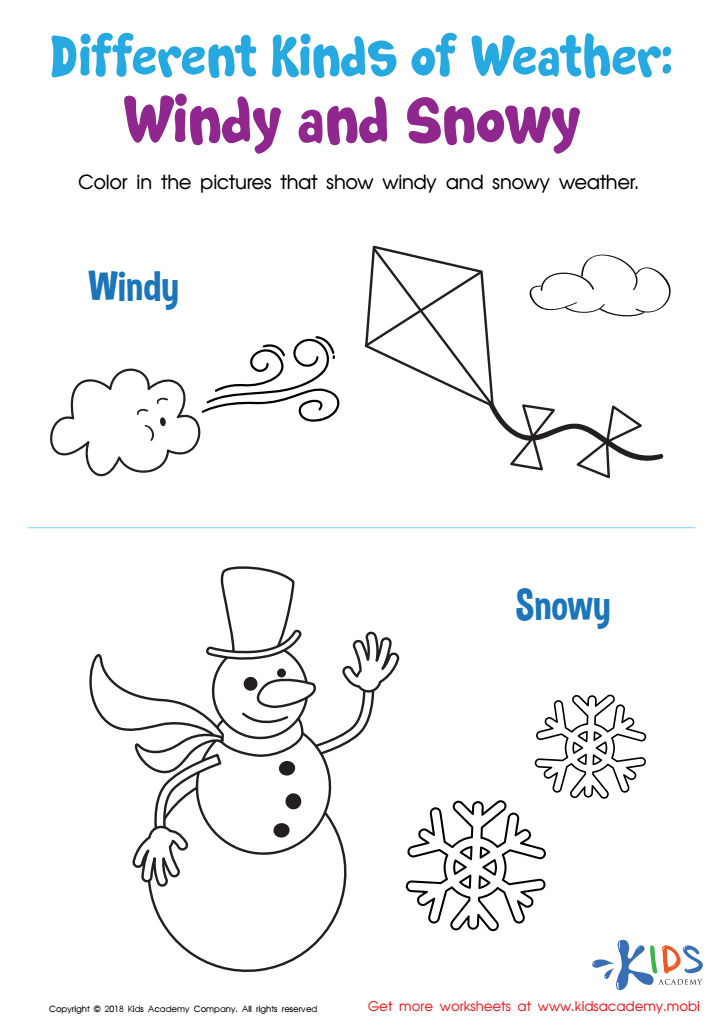Weather Vocabulary Normal Science Worksheets for Ages 5-8
3 filtered results
-
From - To
Discover fun and engaging Weather Vocabulary worksheets designed for children ages 5-8 on Kids Academy! These printable science resources provide young learners with the perfect introduction to weather-related terms through interactive and colorful activities. Each worksheet aims to build foundational science knowledge while enhancing vocabulary skills. Tailored for early grade students, our worksheets are crafted to align with age-appropriate learning standards. Whether it's identifying types of weather or understanding simple meteorological concepts, our activities ensure a delightful educational journey. Unlock a world of knowledge and make learning about the weather both exciting and enriching!


Favorite Kind of Weather Worksheet


Different Kinds of Weather: Windy and Snowy Worksheet
Understanding weather vocabulary is crucial for young children aged 5-8 as it lays the foundational knowledge for comprehending more complex scientific concepts later in life. When parents and teachers introduce basic weather terms like "rain," "snow," "sunny," "cloudy," and "windy," children can better grasp the world around them. This foundational vocabulary helps kids develop language skills, cognitive abilities, and observational skills. For instance, discussing how clouds form or the difference between hot and cold can lead to an early appreciation of cause and effect, an essential scientific principle.
Additionally, weather plays a significant role in daily life, influencing what we wear, how we travel, and even our safety. Children with an awareness of weather terms and their implications are better prepared to understand and adapt to their environments. This awareness promotes critical thinking and problem-solving skills. For example, understanding why we wear raincoats when it rains or how to stay safe in a thunderstorm are practical lessons tied directly to weather vocabulary.
Overall, instilling weather vocabulary in children gives them the tools to make sense of their surroundings and fosters a natural curiosity about Earth's processes, setting a strong groundwork for lifelong learning in science.

 Assign to My Students
Assign to My Students
















